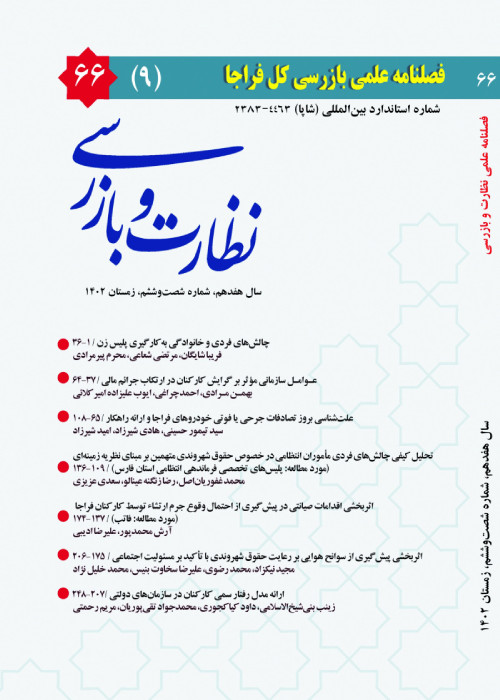Designing Faraja's human resource management model at a strategic level based on the experiences of 8 years of holy defense with a view to the future
Since the publication of the first research on management, human resource management researchers have always tried to provide appropriate theories so that managers of organizations can become effective managers by relying on them. It is natural that the task of managers in the organization in machine-like theories is very different from the real management of human resources. Based on this, the current research has been conducted with the aim of designing a model of human resources management at strategic levels based on the experiences of 8 years of holy defense with a view to the future.
The current applied research, the combined research method and the number of members of the statistical community are 50 managers of the Faraja organization, all of whom are expert professors, university faculty members and have a master's or doctorate degree and have at least 20 years of management experience at macro levels. And they are strategic. The sampling method of the research is snowball until theoretical saturation is reached. To analyze the interviews, the content analysis method was used and the experiences of 8 years of defending the latest achievements in the field of management at strategic levels, in the research literature, with the help of case meta-analysis. The analysis was done. For the purpose of accreditation, the survey questionnaire of members and experts was used, and for designing the model and identifying the relationships between the dimensions of the model, the interpretive structural modeling method was used.
The findings of the research indicate that the dimensions of the management model at strategic levels based on the experiences of 8 years of Holy Defense with a view to the future, in order of priority, are: level one: belief, value and religious dimension (beliefs of the heart); Level two: personality and moral dimension (speech or language beliefs); Level three: jurisprudential and behavioral dimension (practical or practical beliefs).
The results of this research show that it is important that if the manager is a moral person and has strong values in the field of self-improvement and communication with God; That is, someone whose primary and basic goal is the satisfaction of God and also takes other situational factors into consideration, one can expect that his management will be successful.
- حق عضویت دریافتی صرف حمایت از نشریات عضو و نگهداری، تکمیل و توسعه مگیران میشود.
- پرداخت حق اشتراک و دانلود مقالات اجازه بازنشر آن در سایر رسانههای چاپی و دیجیتال را به کاربر نمیدهد.



